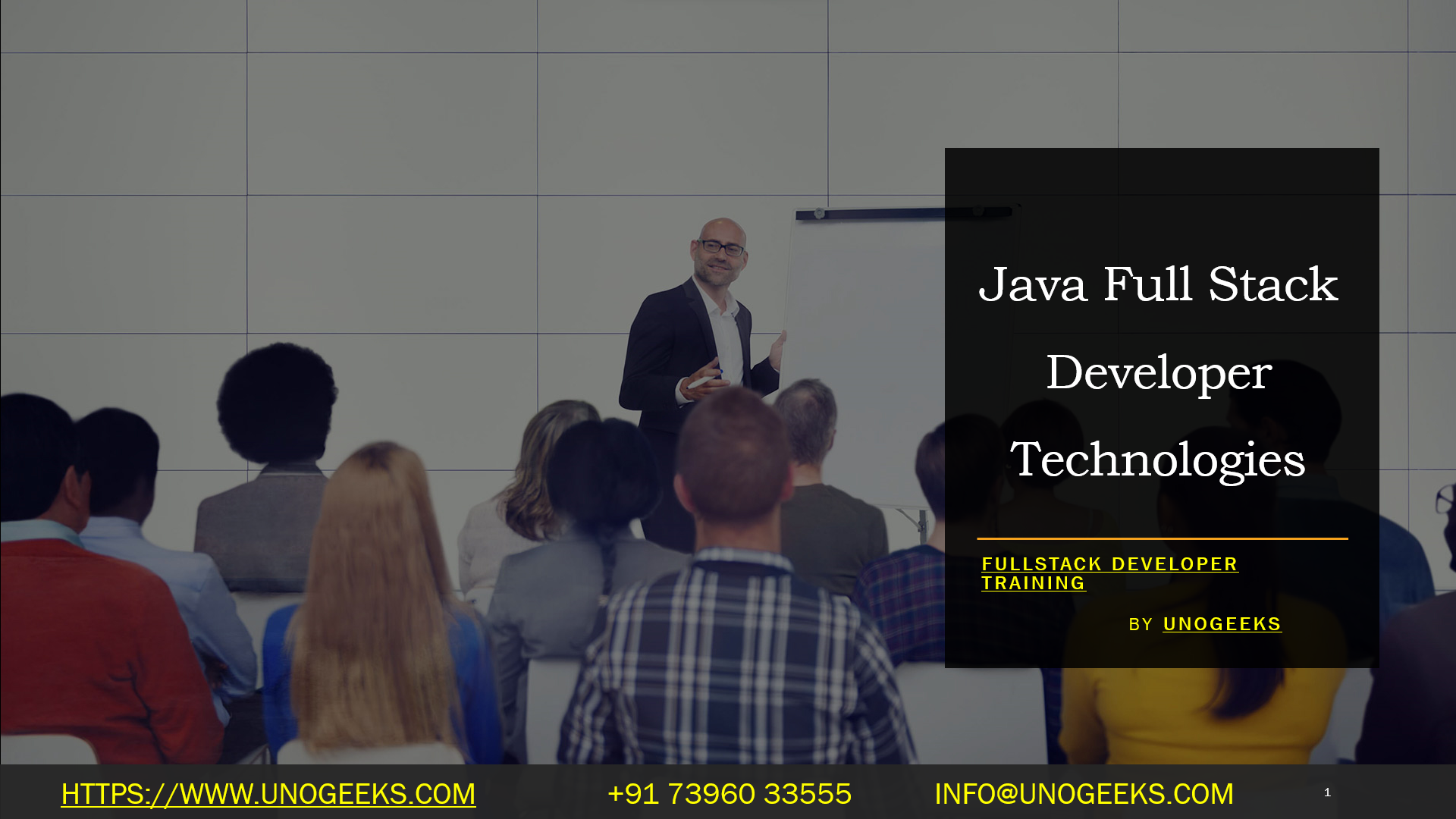Java Full Stack Developer Technologies
Java Full Stack Developer Technologies
A Java Full Stack Developer needs to be proficient in a variety of technologies and tools that span the entire web application development stack. Below is a comprehensive list of technologies and tools that are typically associated with a Java Full Stack Developer:
Frontend (Client-Side):
- HTML/CSS/JavaScript: Fundamental building blocks for web development.
- Frameworks and Libraries:
- React: A JavaScript library for building user interfaces.
- Angular: A platform and framework for building client-side applications.
- Vue.js: A progressive framework for building user interfaces.
- Package Managers:
- npm: The package manager for JavaScript.
- Yarn: A dependency manager that also serves as a project manager.
- Build Tools:
- Webpack: A module bundler.
- Babel: A JavaScript compiler.
- CSS Preprocessors:
- Sass: A stable, powerful, and professional grade CSS extension.
- LESS: A backward-compatible language extension for CSS.
Backend (Server-Side):
- Java: The core programming language.
- Frameworks:
- Spring Boot: An open-source Java-based framework used to create stand-alone, production-grade Spring-based applications.
- Hibernate: A framework for the Java programming language for mapping an object-oriented domain model to a relational database.
- Build Tools:
- Maven: A software project management and comprehension tool.
- Gradle: An open-source build automation system.
- Application Servers:
- Tomcat: An application server from the Apache Software Foundation.
- WildFly: Formerly known as JBoss, an application server authored by JBoss.
- APIs and Middleware:
- RESTful Services: An architectural style for distributed systems.
- WebSocket: A communication protocol providing full-duplex channels over a single TCP connection.
Databases:
- Relational Databases:
- MySQL: An open-source relational database.
- PostgreSQL: A free and open-source relational database.
- Oracle: A commercial relational database.
- NoSQL Databases:
- MongoDB: A document-oriented NoSQL database.
- Cassandra: A highly scalable, distributed NoSQL database.
Version Control:
- Git: A free and open-source distributed version control system.
- GitHub, GitLab, Bitbucket: Platforms to host and review code, manage projects, and collaborate.
Other Essential Tools & Technologies:
- Docker: A platform to develop, ship, and run applications inside containers.
- Kubernetes: An open-source container orchestration platform.
- CI/CD Tools: Jenkins, Travis CI, CircleCI, etc.
Testing:
- JUnit: A testing framework for Java.
- Mockito: A mocking framework for Java.
- Selenium: A tool for controlling web browsers through programs and performing browser automation.
Being familiar with these technologies can equip a Java Full Stack Developer to handle various responsibilities from the frontend to the backend. However, the exact set of technologies a developer should know can vary based on the specific requirements of a project or a company.
Full Stack Developer Training Demo Day 1 Video:
Conclusion:
Unogeeks is the No.1 IT Training Institute for Full Stack Developer Training. Anyone Disagree? Please drop in a comment
You can check out our other latest blogs on Full Stack Developer Training here – Full Stack Developer Blogs
Please check out our Best In Class Full Stack Developer Training Details here – Full Stack Developer Training

———————————-
For Training inquiries:
Call/Whatsapp: +91 73960 33555
Mail us at: info@unogeeks.com
Our Website ➜ https://unogeeks.com
Follow us:
Instagram: https://www.instagram.com/unogeeks
Facebook:https://www.facebook.com/UnogeeksSoftwareTrainingInstitute
Twitter: https://twitter.com/unogeeks
